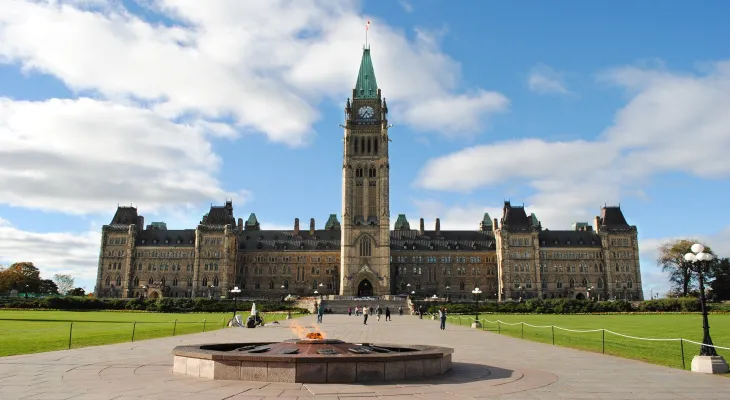Search here
Newspaper
Search here

Arab Canada News
News

Published: June 23, 2022
The confidence agreement reached between the Liberals and the New Democratic Party three months ago has increased polarization in Canadian politics.
This agreement means that members of parliament will enjoy a quiet summer, without having to prepare for a possible election in the fall for the first time in four years.
The New Democratic Party and the Liberals describe the agreement as successful so far. For the Conservatives and the Bloc Québécois, the agreement was frustrating, leading to their exclusion from many House of Commons negotiations because the Liberals no longer had to question which opposition party would be their future partner.
Under the agreement announced on March 22, the NDP offered government support on most confidence votes and the Liberals agreed to cooperate on some NDP priorities.
In the following months, the NDP actually voted with the government on confidence bills, including the budget, but also on several non-confidence issues. NDP MPs helped the government limit debate on some bills and get others, including controversial changes to the Broadcasting Act, through the House of Commons and the Senate.
On the other hand, the Liberals moved on some NDP priorities including introducing a national dental care program in the federal budget, and some housing programs.
House Leader Mark Holland downplayed the significance of the agreement's impact on Wednesday, saying the main effect is "providing parliamentary stability."
Meanwhile, NDP leader Jagmeet Singh said Wednesday he felt the agreement was proceeding as hoped and he was confident it would continue to deliver NDP priorities in the coming months.
But he warned that if Prime Minister Justin Trudeau did not fulfill his promises, he would be prepared to withdraw NDP support for the Liberal minority government. He said he intends to pressure the government heavily to do more to help Canadians suffering under record inflation.
Singh and Trudeau have met several times as required under the agreement, and cooperation and information sharing between the two sides are said to be good.
Liberal MP Rob Oliphant, Parliamentary Secretary for Foreign Affairs, said the agreement has motivated Trudeau and the Liberals, who can move forward on their priorities without the constant threat of defeat.
Oliphant said the agreement had the opposite effect on the Conservatives.
He added, "What it does is it takes the wind out of the Conservatives’ sails, because they know they can't easily defeat us." "And I think they don't know what to do about that."
Conservatives describe the confidence and supply agreement as a coalition government of the NDP and Liberals, effectively giving the Liberals the majority they failed to win in the 2021 election.
Brasard said this also means the end of any discussions the Liberals had with the Conservatives.
He said, "The official opposition was effectively excluded." "We were often the last to hear about many things happening inside the House of Commons because the Liberals simply went to the NDP and said, 'This is what we want to do,' and get their approval."
There were occasional signs of cooperation between more than one party, as all members of parliament voted in favor of legislation to ensure seniors receive guaranteed income benefits and COVID-19 grants.
Amid this, all Conservatives engaged in internal strife, as their third leadership race in six years revealed some deep divisions within the party.
Eryn O'Toole was voted leader by the party caucus in early February, just as a convoy of Canadians closed streets around the Parliament building and several border crossings, demanding an end to all COVID-19 restrictions and the ousting of Trudeau.
On the other hand, the convoy covered much of the political scene throughout 2022. Adding to the tense atmosphere were inquiries and ongoing hearings regarding the government's decision to apply the Emergencies Act, with the government accused of withholding information that could be justified by the Emergencies Act.
During this period, Liberal bills slowed, with only four major laws passed since Christmas so far, and one of these laws took a long time, forcing some Canadians to wait weeks for tax refunds.
Editing: Dima Abu Khair
Comments